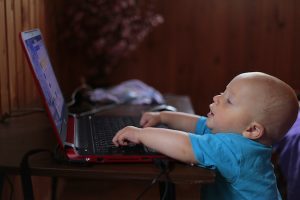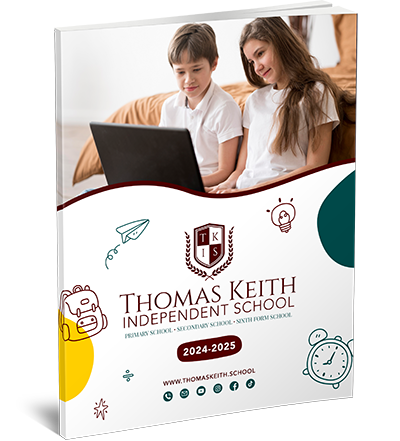
Nurturing Early Learning: Creating a High-Quality Preschool Homeschool Curriculum
A child’s academic performance begins in preschool. Parents can actively participate in their preschooler’s education through homeschooling. With the ability to personalise the curriculum to their child’s needs and interests, parents may develop a high-quality preschool homeschool curriculum that encourages early learning. In this post, we’ll discuss how to create a preschool homeschool curriculum that inspires a love of learning and prepares kids for school.
Setting learning objectives is the first step in building a preschool homeschool programme. Think about early development skills and expertise. These may include language and reading skills, numeracy ideas, fine and gross motor skills, social-emotional development, and creative expression. Clearly defined learning objectives will guide your curriculum planning.
Language and literacy are essential in preschool. Develop vocabulary, phonics, storytelling, and early reading abilities with exercises. Read aloud, talk, and play games with your child to help them develop language abilities. Encourage autonomous reading and introduce age-appropriate novels.

The curriculum should include counting, number recognition, shapes, and patterns. Use manipulatives, games, and hands-on activities to engage your youngster in mathematical discovery. Introduce basic addition and subtraction via play and real-life situations. Encourage your child to identify shapes in their environment and use patterns in art and building.
Developing fine and gross motor abilities in preschool is critical. Hand-eye coordination, fine motor control, and gross motor skills should be practised. To improve fine motor abilities, offer sketching, colouring, cutting, and pasting. Run, leap, and climb to improve balance, coordination, and major muscular growth.
Social-emotional development is crucial in preschool homeschooling. Encourage your child to socialise with friends, siblings, and the community. Join homeschooling organisations, playdates, or community events that promote socialisation. Through role modelling and guided talks, teach your child empathy, cooperation, and dispute resolution.
Creative expression and artistic inquiry are essential to a well-rounded preschool education. Include drawing, painting, sculpting, and imaginative play in your child’s activities. Music and movement activities promote rhythm, coordination, and self-expression. Dramatic play and storytelling enhance creativity and imagination in children.
A preschool homeschool curriculum is flexible. Your child’s learning style, interests, and developmental stage should inform the curriculum. Observe your child’s interests and integrate activities that engage them. Adjust the pace of training to meet their requirements, spending more time on difficult concepts or speeding up learning in strengths.
Preschool homeschool curriculum should include field trips and hands-on activities. Make use of homeschooling’s freedom to visit local museums, parks, zoos, and other educational facilities. Your youngster will learn more from these field trips. To promote hands-on learning, try gardening, nature hikes, or science experiments at home.
Support the preschool homeschool curriculum with various materials. Use age-appropriate books, instructional websites, interactive apps, and educational toys to reinforce concepts and engage your child. Use interactive preschool-focused online educational tools. To improve learning, use multimedia technologies.

An effective preschool homeschool programme requires parental involvement. Help your child learn by leading and facilitating activities, encouraging and supporting them, and giving constructive comments. Create a supportive and encouraging learning atmosphere that acknowledges your child’s achievements and encourages their self-confidence and love of learning.
A strong preschool homeschool curriculum is crucial for fostering early learning and academic success. By setting clear learning objectives, incorporating language and literacy skills, numeracy concepts, fine and gross motor skills development, social-emotional learning, creative expression, flexibility, and hands-on experiences, parents can create a well-rounded curriculum that engages their children and fosters a love of learning. By actively participating in their child’s education and using various tools, parents may ensure a rich and interesting preschool homeschool experience that sets the basis for future academic success.
Nurturing Early Education: Preschool and Homeschool Curriculum
Homeschooling parents with small children must choose a preschool homeschool curriculum. A good preschool homeschool curriculum fosters a love of learning and provides a sound academic and developmental foundation. We’ll discuss what makes a preschool homeschool curriculum useful and enjoyable for young learners in this article.
A solid preschool homeschool curriculum meets young children’s developmental requirements and skills. It should offer activities and materials that support their cognitive, physical, social, and emotional growth. A curriculum that integrates play, exploration, and hands-on experiences will engage and teach preschoolers.
The curriculum should encompass various disciplines and skills to provide a comprehensive education. It should encompass language, reading, numeracy, science, social studies, art, music, physical education, and social-emotional learning. This multidisciplinary approach promotes overall development by exposing children to a variety of concepts and abilities.
Clear learning objectives and goals are essential for a preschool homeschool curriculum. These objectives describe what preschoolers should learn. These goals should be met through an organised curriculum. Parents may assess growth and ensure children reach age-appropriate milestones with clear goals.
Flexibility is essential in a preschool homeschool curriculum. It should be customisable to match each child’s requirements and interests. A curriculum that may be personalised keeps preschoolers engaged and motivated.
The curriculum should include a variety of instructional methods and resources to accommodate diverse learning styles. Hands-on exercises, visual aids, manipulatives, books, and interactive web resources should be included. Diverse learning styles are accommodated by using different teaching approaches.

A remarkable preschool homeschool curriculum should encourage exploration and discovery. It should inspire youngsters to question, examine, and experiment. Hands-on activities, science experiments, nature walks, and field visits stimulate active learning and curiosity.
Play-based learning is another vital component of an effective preschool homeschool curriculum. Young children learn best via play, so a curriculum that includes play-based activities keeps them engaged and motivated. Early education relies on play to help kids explore, problem-solve, and socialise.
Language and literacy development activities should be tailored to the appropriate age group within a preschool homeschool curriculum. Vocabulary, hearing, speaking, and early reading and writing abilities should be developed throughout the curriculum. Stories, rhymes, songs, and interactive language activities foster language development and literacy abilities.
Introduce numeracy and maths slowly and hands-on. The curriculum should teach number recognition, counting, sorting, patterning, and basic addition and subtraction. Young learners can grasp math concepts with manipulatives like counting blocks or beads.
Social-emotional learning is vital to an effective preschool homeschool programme. Self-awareness, emotional management, empathy, and social skills should be included. Problem-solving, conflict resolution, and communication skills should be practised in a nurturing setting.
Preschool homeschool education should foster creativity and artistic expression. Drawing, painting, sculpture, and dramatic play should be included. Music, movement, and narrative boost imagination and creativity.
Active parental involvement is essential in a preschool homeschool curriculum. Parents should be able to actively engage in their child’s learning with a strong curriculum. It should recommend extension activities, help plan and organise courses, and incorporate real-life experiences into the curriculum.
An exceptional preschool homeschool curriculum is comprehensive, engaging, and tailored to the appropriate age group. It should have clear learning objectives, cover a variety of subjects, allow for personalisation, involve play-based learning, use varied teaching techniques and resources, and encourage social-emotional development and creativity. By picking a curriculum that includes these qualities, parents may create a supportive and engaging atmosphere that lays the scene for a lifetime of learning and success.







